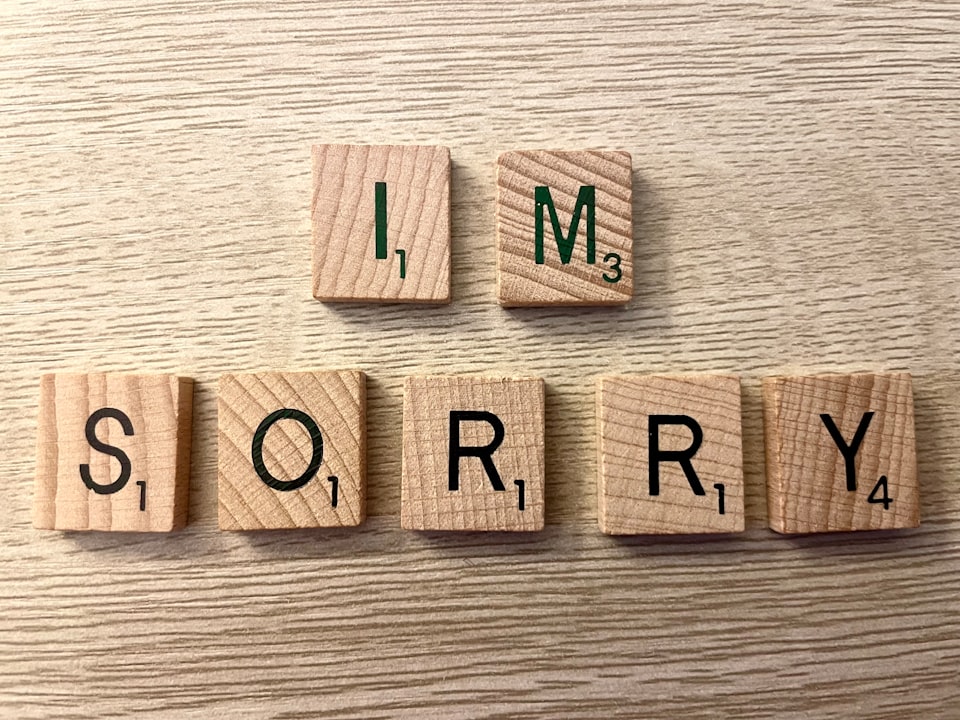apologies

While we're still on the topic of confession, let's look at the most common type: the apology. This is the type of confession you make directly to the person you wronged.
“A stiff apology is a second insult. The injured party does not want to be compensated because he has been wronged; he wants to be healed because he has been hurt.” – G.K. Chesterton
I'm not an expert on interpersonal communication, but here's a fun video I found. It's been really helpful in my experience. I hope it's helpful to you too!
Some notes I took away from this video:
- You may be tempted to defend your actions as accidental, but understanding and accepting responsibility for your actions is the “centerpiece of an apology.” Clarifying your intentions can be helpful, but your actions being an accident doesn't release you from offering a sincere apology.
- Apologies aren't intended to make you feel better. Apologies are about seeking to understand the perspective of the wronged party and repair the damage to your relationship.
- Try to understand the other person's perspective rather than rationalizing your own actions.
- The offer of repair is crucial to a good apology. But remember: a promise to do better is only good if you actually do better.
- Apologies aren't about getting forgiveness and moving on. They're about expressing remorse and accepting accountability. Good apologies are just the first step on the road to reconciliation.
So if you are offering your gift at the altar and there remember that your brother has something against you, leave your gift there before the altar and go. First be reconciled to your brother, and then come and offer your gift. – Matthew 5:23-24
